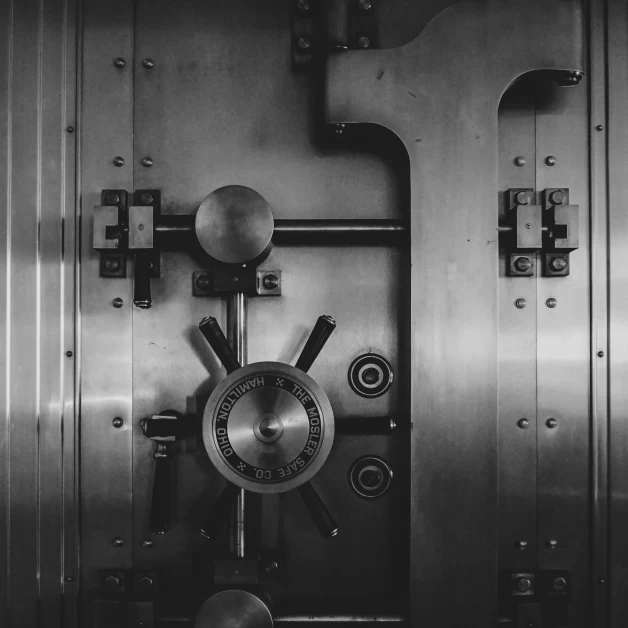Table of Contents
Introduction
When it comes to cryptocurrencies, the security of your assets is of utmost importance. One way to ensure the safety of your funds is by using a self-custody wallet. In this article, we will explore what self-custody wallets are, their benefits, and how to self-custody your crypto assets. We will also discuss the importance of security and provide tips on how to keep your funds safe. So, let’s dive in and answer the question: Are crypto wallets safe?
What is a Self-Custody Wallet?
A self-custody wallet, also known as a self-custodial wallet, allows crypto users to take sole possession of their wallet’s private keys instead of relying on a third-party exchange. Unlike custodial wallets provided by exchanges like Coinbase or Kraken, self-custody wallets give users complete control over their funds without involving any intermediaries. However, using a self-custody wallet requires some technical expertise and a higher level of responsibility for securing your assets.
The Benefits of Self-Custody: Total Control of Your Crypto
The main advantage of self-custody wallets is that they provide you with total control over your crypto assets. The saying “not your keys, not your crypto” is often used in the crypto community to emphasize the importance of controlling your private keys. When you use a custodial wallet, you are essentially entrusting the security of your funds to a third party. This can be risky, as custodial wallets have been targeted by hackers in the past, resulting in the loss of billions of dollars.
The recent collapse of FTX, one of the largest and most trusted exchanges, serves as a stark reminder of the potential security threats associated with custodial wallets. By self-custodying your crypto assets, you eliminate the risk of losing your funds due to the failure or misuse of a third-party wallet or exchange.
How to Self-Custody Bitcoin & Other Cryptocurrencies
If you’re considering self-custodying your crypto assets, the first step is to create a self-custody wallet. Whether you’re starting from scratch or transferring your funds from a custodial exchange wallet, here’s a step-by-step guide to help you make the move to self-custody.
-
Create a self-custody wallet: Download a self-custody wallet provider like BitPay Wallet. This wallet allows you to buy, swap, store, send, receive, and make crypto payments while maintaining control over your private keys.
-
Store securely: Unlike custodial wallets, self-custody wallets require you to take responsibility for securing your recovery phrases and private keys. Backup your recovery phrase immediately after creating your wallet and store it in a safe place offline.
-
Record your new wallet address: Your wallet address is required for receiving and sending crypto. In the BitPay Wallet app, you can find your wallet address by selecting “My Key” on the home screen and choosing “Share Address.”
-
Initiate the transfer: If you’re transferring funds from a custodial exchange, log into your account and select the “Send” option. Enter your new self-custody wallet address and the amount of cryptocurrency you want to transfer. Review the transaction details and confirm the payment.
-
Enjoy the new control: Once the transfer is complete, you’ll see your transferred crypto in the “My Key” section of the BitPay app. Remember to exercise caution and keep your recovery phrase secure to protect your funds from hackers and thieves.
Using a Self-Custody Wallet
A self-custody wallet provides you with various functionalities to manage your crypto assets securely. Here are some features and benefits of using a self-custody wallet like BitPay:
-
Store securely: With a self-custody wallet, you don’t have to rely on external websites to safeguard your crypto funds. BitPay Wallet offers easy backups and industry-leading security to help you protect your assets.
-
Buy: BitPay allows you to buy popular cryptocurrencies and stablecoins like Bitcoin, Ethereum, Litecoin, Dogecoin, and Bitcoin Cash. You can make purchases with a credit card, debit card, Apple Pay, or Google Pay, ensuring near-instant delivery without excessive markups or fees.
-
Swap: Easily and securely exchange one cryptocurrency for another within the BitPay app. The “Swap” feature provides competitive quotes in seconds, allowing you to diversify your crypto portfolio.
-
Transfer/Send/Receive: Move, send, or receive secure crypto to any wallet worldwide. You can even transfer your crypto across different wallets and devices by exporting/importing your wallet keys.
-
Pay with Crypto: BitPay’s self-custody wallet simplifies the process of paying with crypto. You can send crypto directly to another user’s wallet, buy gift cards with crypto, load a crypto debit card, or shop with merchants that accept crypto payments. BitPay Wallet has higher payment success rates compared to exchange wallets, ensuring a smoother transaction experience.
Do I Still Need to Buy Crypto on an Exchange with a Self-Custody Wallet?
Most self-custody wallets, including BitPay, offer the ability to buy cryptocurrencies within the wallet itself. BitPay provides competitive rates on top cryptocurrencies and flexible payment methods. All purchased crypto is delivered quickly and stored securely in your self-custody wallet.
Conclusion
In conclusion, self-custody wallets offer a higher level of security and control over your crypto assets compared to custodial wallets. By self-custodying your funds, you eliminate the risk of losing your assets due to the failure or misuse of a third-party wallet or exchange. With a self-custody wallet like BitPay, you can store, buy, swap, send, receive, and make crypto payments securely and conveniently. Remember to prioritize security by securing your recovery phrase and private keys in a safe place. So, are crypto wallets safe? With proper security measures in place, self-custody wallets can be a safe and reliable option for storing and managing your crypto assets.







